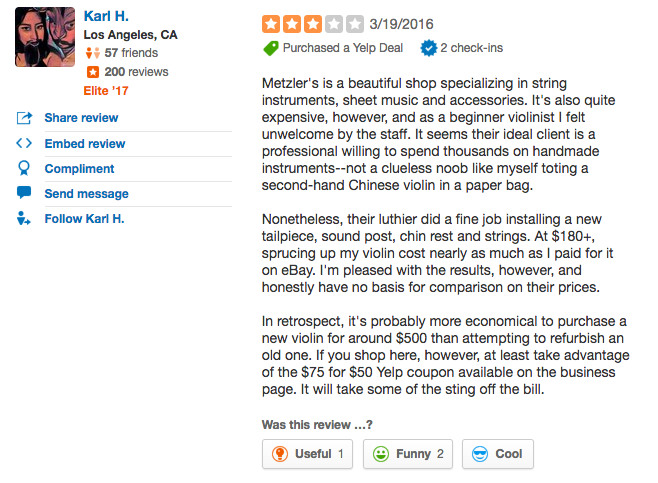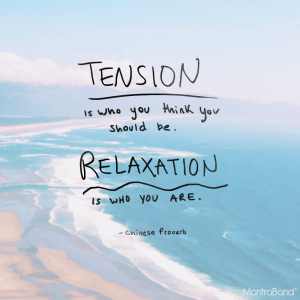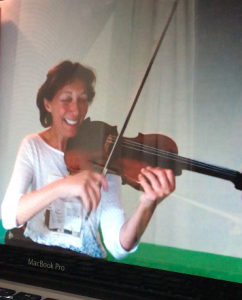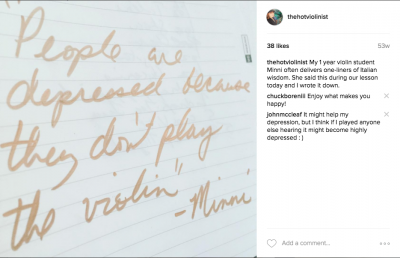This was email only when I sent it out on Wednesday. Because of requests on YouTube, I've made it a blog post as well.
Please sign up for the email list if you'd like to catch everything like this in the future. 🙂
Here's a little about how I got bit by the music bug:
During my junior year of high school, I was lucky to fall in with a group of friends who were forming, of all things, a Greek band.
My friend Vanessa was a senior, and seniors were allowed to leave the school campus for lunch. I would smile sweetly from the passenger seat of her Nissan while she would flash her senior ID to the all powerful guard (teacher in a brown suit).
Boom. Freedom.
Then she’d turn the volume up on the tunes while we make our temporary escape from school.
One day the music was quite different than all the days before. Women with deep sounding voices singing with near anguish in an exotic language.
Long story short, she was going to start singing songs like this, with some guy I didn’t know, who was forming a band to play at local Greek restaurants.
The idea of being good enough to play for a real audience at a restaurant completely dazzled me.
Eventually I’d come to find out they needed a bass player.
I had played a little guitar, and enjoyed gyros, so I decided to try it.
The parts I learned were super simple, but hey, it got me in the band!
I was watching my new friends practice and get a lot better on their instruments in just a matter of a few months.
One day I came home and my Mom had a CD playing in the living room. Folky vocal music, Garnet Rodgers, and I’d heard it tons of times.
I think I was grabbing a glass of water, and just about to run up the stairs to my room, but then track 9 came on. I had never really noticed it before.
Totally different vibe from the rest. One violin, all alone and echoey.
I plopped down on my Dad’s lazy boy and reclined there until the piece was over. Then I looked on the back of the CD to find out that the piece was called “Farewell to Music” by O’Carolan.
I felt like an ancient voice had crossed time to sing to me. Sounds kinda woo-woo but that's how I felt at the time.
Later that night I had a talk with my parents.
Mom. Dad. I’m going to be an Irish fiddler.
My parents were supportive, but looking back I can tell they probably had their fingers crossed it was a phase.
I was like, “Come on guys what’s the big surprise?”.
I mean yeah I did pretty well in the main subjects at school, but I was already big time artsy fartsy.
I finagled my schedule so that I could take art class, theater, photography, AND journalism. I wore tie dye dresses to school. (This was the late 90’s not summer of 69!)
But looking back I realize it actually was kind of a zany leap to choose music as a career path considering:
I was not proficient on ANY instrument.
But by golly, I picked my instrument: Violin.
And I knew WHY: I wanted to play haunting old melodies. I wanted to travel and perform them for people. (And I wanted to impress a dark mysterious bouzouki player with dreadlocks, but that’s a story for another time…)
On Monday you boldly completed my super complex and high tech exercise to pick your WHAT INSTRUMENT and WHY.
If you didn’t have a chance to do that, go ahead and go back and do it now. We will wait.
…….Welcome back!
I made a lot of mistakes along the way, and considered quitting countless times.
I found out that you can make unlimited mistakes along the way, as long as you don’t make The Fatal Mistakes.
The Fatal Mistakes are basically anything that leads you to quitting before you really deep down want to move on for your own good reasons.
Since then I’ve had the immense honor to follow some of your journeys via my Hot Violinist blog.
I’ve seen some miraculous recoveries from Fatal Mistake Land that prove even big mistakes can be reversed.
So basically, I keep using the word fatal because I’m being dramatic.
But also because it’s true that once you’ve convinced yourself you can’t do something, it tends to become a self fulfilling prophecy.
In order to nip unhelpful ideas in the bud, I wanted to go over THE five big ones I’ve seen again and again.
Some of these are from my own experience and others are from my students or blog readers who email me.
Now I’ll be getting a little more violin specific but most of this can apply to other instruments as well.
(And I will be sharing more ideas on Friday and next Monday to help kick start start your journey even if you emailed me that you really want to learn guitar, trumpet, or even xylophone.)
MISTAKE #1 Bad Equipment
I’m not going into a ton of detail here because I’ve done it before.
Bottom line is:
Worst case scenario, bad equipment can have you convinced there’s something wrong with you when really the instrument is practically unplayable.
Best case scenario, it ends up costing you more money in the long run to either repair or replace the crappy first instrument.
I happened to notice this when I was looking for Yelp reviews of a violin shop one of my students wanted to visit.
 I’ve heard this story or a version of it 100 times. Unless you have time and money to burn, bad equipment can be a fatal mistake.
I’ve heard this story or a version of it 100 times. Unless you have time and money to burn, bad equipment can be a fatal mistake.
I’m begging you not to do this one.
MISTAKE #2 Go it alone
Nobody who gets really good at music does it all alone.
Most of the people who seem super “talented” have actually had tons of excellent training. Most people know that when they see Joshua Bell or some other virtuoso, but maybe we don’t always realize that this applies right down to your standard radio pop singer as well.
Coaches out the wazoo.
Some great musicians will say they have no formal training.
Take the amazing Irish fiddler Liz Carroll, for example. Word has it she picked it up as a kid and never had lessons. But then when you hear the whole story (and I did when I attended a fiddle camp she was teaching), you find out her parents took her to the Irish jam session every single week for years and years of her childhood.
So it turns out she had a TON of exposure, and surely a helpful community to teach her over the course of the first two decades of her life.
Adult beginners don’t have the luxury of that kind of time.
Everything is on YouTube, which is awesome, but it’s hard to tell what’s good and what’s bad. On top of that there’s no sequence to say:
-Do this first
-THEN do this….
It’s incredibly overwhelming and tends to be a breeding ground for nasty bad habits.
(Bad habits are not fun… the struggle is real!)
I get it that private lessons every week aren’t practical for everyone, but you’ve gotta find a way to get some personalized guidance or a collection of people you can ask for different kinds of help when you need it.
MISTAKE #3 Stay with a teacher who is majorly frustrating you.
The only thing worse than no teacher is staying with one teacher who isn’t working out for you.
I had to change teachers over 5 times before I started to get traction learning violin. It doesn’t mean the first teachers were bad. Sometimes you just need to hear something in a different way or try a different angle to get through times when you feel stuck.
Don’t stay with the same teacher for more than 6 months to a year unless you can tell they are helping you get better.
MISTAKE #4 The “Talent” Trap
Aye yi yi- I dunno why our culture is so charmed with the idea of people being born with innate ability.
We tend to be obsessed by extreme examples and outliers. No doubt there are supernatural stories of all kinds people can point to.
More and more scientific brain research tells us that:
-Basic musical skill is built into everyone’s DNA
-”Perfect pitch” is not a genetic accident but is developed with training
-Top performers ALL have the best training and smartest practice habits
But I’m not here to turn this into a research paper or try to negate that your sister’s husband’s friend’s son never practiced and didn’t take one lesson and is now composing operas at his college.
Weird stuff happens.
Do a quick google search on “music talent” and you’ll see wildly heated debates about nature vs. nurture. People get very emotional about this!
Based on my experience and first hand observation I believe that musical skill mostly comes down to good and consistent training.
You can decide for yourself what to believe on this spectrum.
Be aware that if you conclude early on that you don’t have talent, or worse yet believe it just because someone told you that once….
It’s a trap.
I’m asking you to keep an open mind and experiment on yourself a lot before deciding that you don’t have the talent required to play the music you want.
Consider the possibility that if you have the desire to play music, that may be all the talent you need. And having the desire is indeed a great gift.
DESIRE = TALENT
I made that formula up myself. (See Dad! Still good at math!)
I believe it wholeheartedly.
MISTAKE #5 Practice Makes Perfect (NOT!)
“You have to practice an hour a day minimum.”
Not true!
“Just keep playing through songs and hope to improve!”
Bad idea!
Bad practice can actually make you worse or keep you sounding bad.
If your practice regimen isn’t fun and/or you aren’t seeing good results from it, it’s likely an issue of practice quality, not quantity.
There are tons of great techniques for making practice more enjoyable and effective.
When your practice is fun and enjoyable you’ll naturally find more time for it. When it makes you miserable and isn’t working, it’s natural that you won’t happen to find time for it.
Have you ever beat yourself up thinking you just don’t have the discipline?
Consider the possibility that it’s actually your good instincts keeping you from repeating a bunch of stuff that deep down, you can tell isn’t working.
Spending that hour on Facebook watching cat videos may actually have been the best thing for you, considering there was a lack of good training and practice strategy.
It's a common saying: Practice makes perfect!
This makes us think that practicing more must be better. (Perfecter?)
It also makes it easy to beat ourselves up or feel behind if we miss a practice. Or it might make us feel somehow flawed if we've been practicing and aren't progressing.
(I know I have been there! There was a while I thought I was born with a defective pinkie!)
The truth is: Practice makes permanent.
Even small amounts. It has been scientifically proven.
So, it's WAY more important to practice the right things when you can than it is to clock a bunch of hours every day.
Let me just step back here to say that the most important thing about practice is for it to be enjoyable.
So rule #1 about practice is: If you're not enjoying it, change it.
Find a great teacher or coach during times that you need to rework your practice strategy.
Breaking things up so that there's a single goal for a 5 minute period is a great way to maintain enough focus to practice the right things.
Or check out this book for some ideas: First Learn to Practice.
It's good for any instrument. Really good!
A lot of people spend years, decades, or lifetimes waiting for the perfect situation, teacher and game plan to start working on a musical instrument.
Try to avoid these mistakes, but don't let fear of them keep you stuck. It's better to try and make a few mistakes than to do nothing at all.
I’ve discovered that every person’s musical journey is different, and the only way you’re going to find out about yours is to go ahead and start with both feet on the path. (And some quality equipment! And training other than random YouTube!)
People will help you along the way.
On Friday I’m going to show you one main secret for becoming really comfortable on your instrument of choice. It's a huge advantage to have this in mind from the start.
Hope to see ya Friday!
Your homework for today is easy:
Step 1) Do a quick YouTube search for musicians playing some of your goal pieces on your goal instrument. Bookmark one or two that you really like.
Step 2) Create a comment below and share the links to your videos!
There will be prizes next week for those who do their homework! 😀






 I’ve heard this story or a version of it 100 times. Unless you have time and money to burn, bad equipment can be a fatal mistake.
I’ve heard this story or a version of it 100 times. Unless you have time and money to burn, bad equipment can be a fatal mistake.
